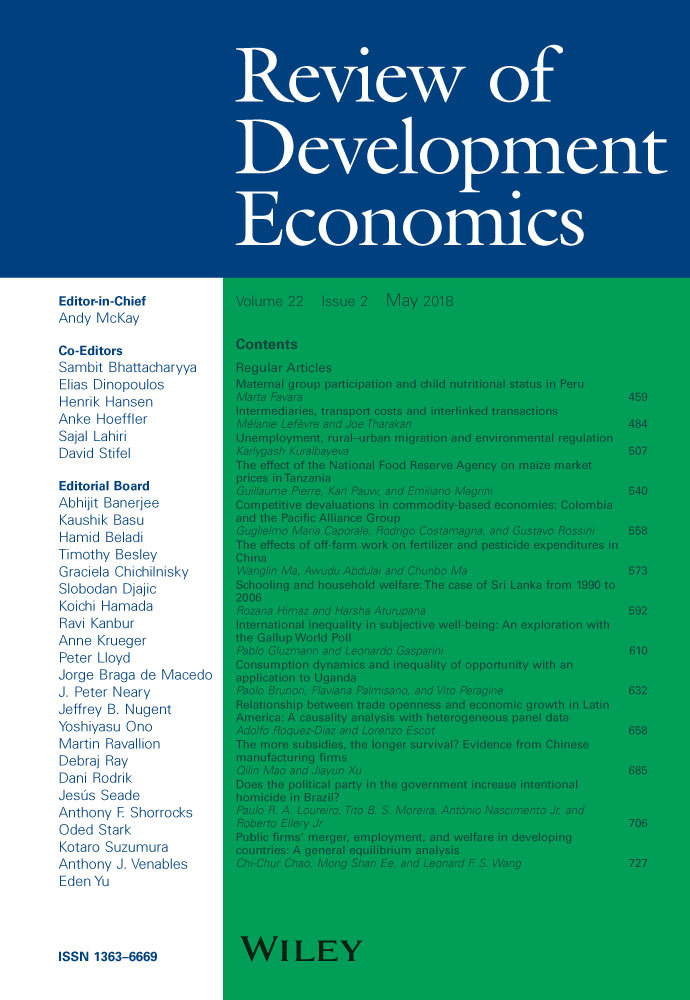Intermediaries, transport costs and interlinked transactions
Abstract
Farmers in developing countries often encounter difficulties selling their products on local markets. Inadequate transport infrastructure in rural areas and large distances between areas of production and consumption mean that farmers find it costly to bring their produce to the market and this very often results in small net margins and poverty among farmers who are geographically isolated. Agriculture in developing countries is characterized by the presence of intermediaries that have a cost advantage over farmers. Because of their market power, these intermediaries are able to impose interlinked contracts and are free to choose the spatial pricing policy they use. In this paper, we develop a model of input–output interlinked contracts between an intermediary and geographically dispersed farmers. We establish when the intermediary uses either uniform or mill pricing policies, as opposed to spatial discriminatory pricing. For each pricing policy, we analyze what the welfare implications are in terms of an increase in farmers' income and a reduction in poverty in rural areas. We also establish how the choice of a spatial pricing policy impacts geographically isolated farmers and how it influences the participation by farmers.




